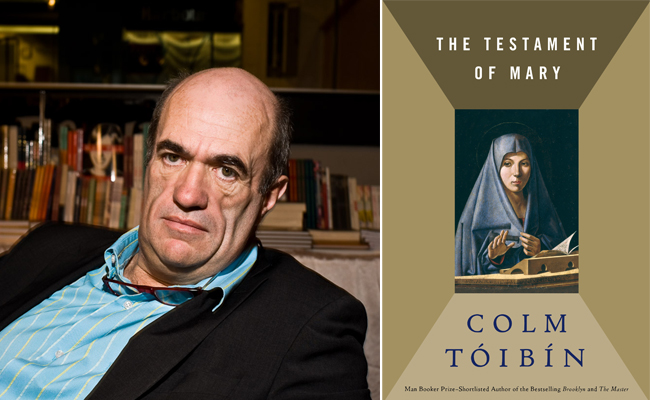

Because The Testament of Mary is very much in the style and tradition of a typical Tóibín novel or short story, in that it describes a world full of mystery marked by strange symbols a world by no means devoid of love but a world where, to all appearances at least, we are essentially alone. In The Testament of Mary, that vision, if anything, makes more sense.

And through that we see, perhaps more clearly than ever before, Tóibín’s own vision of the world, the vision which has informed darkly luminous works such as The Blackwater Lightship and The Empty Family. Tóibín does not make any grand claims for it he does not seek to say that this is the defining story of Mary but rather that this is as close and as honest an imagining of her that he, by flexing all of his considerable literary talents, has been able to achieve. It is a book worthy of the highest critical praise, not only for its peerless literary style – which we have come to expect from Tóibín – but for its imaginative and philosophical reach. Her life ends with her praying to Artemis, the many breasted fertility God and descending in her mind into a city like ‘an opal set in emerald.’ So it is indeed a reassuring sign of changing attitudes, especially, you would have to say in Tóibín’s native Ireland, that The Testament of Mary has so far attracted only literary praise and a complete absence of religious intolerance.

A Mary who is distrustful, almost to the point of active dislike, of the apostles, who appear boorish and at times even sinister – not least John, the man who comes to put words into her mouth and convince her that she is the Mother of God. ‘If it had been some years ago, they would have leapt on it, but now they’ve got other things.’Īnd leapt on it they most certainly would have done because The Testament of Mary is told from the point of view of a Mary who believes that Jesus is possibly ‘out of his mind’ and who will not speak his name anymore because it is too associated with what he became, as opposed to the child that she raised. ‘I don’t think the ecclesiastical people have any authority,’ Colm Tóibín recently told the Sydney Morning Herald. John Lavin commends Colm Toibin’s The Testament of Mary, a philosophical and literary exploration of the story of Mary.


 0 kommentar(er)
0 kommentar(er)
